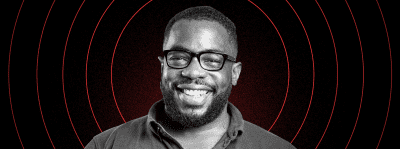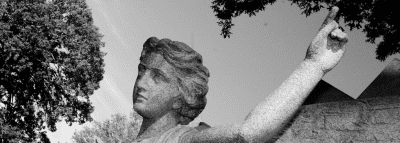Poet Carl Hancock Rux on John Lewis and ‘always becoming’
Rux—a poet, playwright, author, essayist and recording artist—is this week's guest on 'Brooklyn Magazine: The Podcast'
Like what you’re hearing? Subscribe to us at iTunes, check us out on Spotify and hear us on Google, Amazon, Stitcher and TuneIn. This is our RSS feed. Tell a friend!
How does one pay tribute to a towering 20th century figure in words and do him any kind of justice? That is precisely the task Carl Hancock Rux was asked to take on last year—twice over.
Last fall, Rux was commissioned by the Lincoln Center to create “The Baptism,” an 11-minute visual poem in tribute to civil rights giants John Lewis and C.T. Vivian, both of whom died on the same day last year.
“I was trying to think what could I say about them that was more than obvious, or in fact deeper than obvious,” says Rux, who is this week’s guest on “Brooklyn Magazine: The Podcast.” “How can I speak to their souls?”
By all accounts, Rux was a good man for the job. A multi-hyphenate’s multi-hyphenate, he is the author of the novel “Asphalt,” the OBIE Award winning play “Talk,” and the Village Voice Literary prize-winning collection of poetry “Pagan Operetta.” He’s also put out five albums of genre-fluid music and a self-described “weirdo.”
Themes of rebirth, perseverance, and becoming permeate “The Baptism.” Rux pays homage to Lewis’ background as a sharecropper, and Vivian’s having come North during the Great Migration. These are iconic figures, but they both had simple origins. “The farmer knows death is another stage of life. We transition,” Rux writes. “We do not die. We are always becoming.”
The poem’s accompanying film is directed by MacArthur genius grant recipient Carrie Mae Weems, a friend of Rux’s. An updated version of “The Baptism” with, a score by Meshell Ndegeocello, is out February 1.
On the podcast, Rux discusses his work and his process. He describes going to the LaGuardia High School of Music & Performing Arts and now living in Fort Greene, Brooklyn. And he has an origin story that is as tragic as his resume is impressive: His mother, a paranoid schizophrenic, was impregnated with him while she was institutionalized. He would never know who his biological father is. He ended up in foster care before ultimately, luckily, being adopted by his great uncle.
“We are all flawed, damaged human beings who breathe the air, and have a right to change the air,” Rux tells me in our interview. “And maybe we re damaged and maybe we’re flawed because of the world we inherited, not because of the world we want to create.”
Listen to the podcast for more.
You might also like 


























